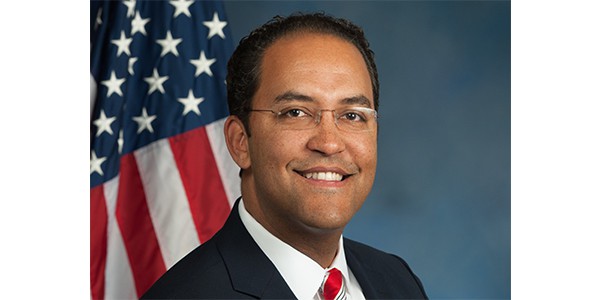Congressman Will Hurd represents 23rd District of Texas in Congress for three consecutive terms in a decade elected in 2012. Located on West Texas, the District is one of the largest geographical districts in the Country. The District faces 820 miles of the Mexican border. Prior to Congress, he served undercover officer CIA the Middle East and South Asia for nearly a decade.
Transcript
John C.: Good Morning America. This is the CATS Roundtable, John Catsimatidis here. Sunday morning, what’s going on around our country? Well, let’s go down to the border of Texas. We have with us congressman Hurd, H-U-R-D. His congressional district is so big it takes up two thirds of the border. He’s a former CIA agent. He worked hard for our country. Now, he’s a congressman. Good morning, Congressman Hurd. How are you?
Hurd: I’m doing great, John. Thanks for having me on.
John C.: Tell all America, how big your congressional district is?
Hurd: Sure, my district spans 820 miles of the border. It’s 29 counties, two time zones. It takes 10 and a half hours to drive across at 80 miles an hour, which is actually the speed limit in most of the districts. It’s larger than 26 states and it’s roughly the size of the state of Georgia. It’s pretty big, and of course, border security is a big issue.
John C.: You’re the perfect guy to talk about border security. Give us your feelings. What’s going on the border?
Hurd: Sure. It starts with my background as a former undercover officer in the CIA. I was the guy in the back alleys at four o’clock in the morning collecting intelligence on threats to our homeland. I’ve been in some pretty pretty dangerous places, chasing bad guys all over the world. Whether it’s drug trafficking organizations, kingpin, human smugglers, terrorists, of course. When you look at what’s happening on our border, it is indeed a crisis.
Hurd: Last month, 103,000 people came in through our border illegally. To give that number some context, all of last year 400,000 people came in illegally. People are taking advantage of the asylum process and ultimately, what the long term solution to this problem is solving the violence and lack of economic opportunities in the northern triangle, that’s El Salvador, Guatemala and Honduras. 90% of the people that are coming through our country illegally are coming through one of those three countries.
Hurd: The long term fix is there. We need to make sure this is not just a problem that that the US and Mexico is dealing with, this is a problem for the rest of the Western Hemisphere. We need the rest of the Western Hemisphere involved in this fight as well too. But also, if you have the opportunity to apply for asylum, when you are abusing asylum, guess what, the people that really need asylum are being impacted.
Hurd: If you had the opportunity to sometimes apply for asylum three or four times and you don’t, you’re abusing that system, and we need to restrict the abuse of asylum laws.
John C.: Why are Democrats in Congress not pro to helping control the borders? Everyone knows that we have to control who’s coming and going. What seems to be the problem?
Hurd: Well, I would say the folks that want to see open borders are a little bit louder than those in the democratic party that actually understand and recognize the need to have border security to control our border, to streamline legal immigration. Why they don’t believe this and understand that, I don’t know. People should go down and see the situation that these people are coming here illegally are in. It really is a humanitarian crisis. It’s not humanitarian to allow them to continue to come in here illegally.
Hurd: Again, most of the democrats that are in Texas that are along the border, understand this challenge, recognize the only way we’re going to solve this problem is ultimately by working together and doing things. We should be having a broader conversation on streamlining legal immigration. We shouldn’t just let anybody come in here. But with the economy doing so well at 3.8% unemployment in some parts of my district, it’s under 2% unemployment, guess what, you need workers. We should be able to streamline legal immigration, and that would address a good chunk of this of this issue.
John C.: Now, you have made comments in the past that is it going to be a fence or a wall or electronic? Give us your comments or what kind of theoretical wall you would like.
Hurd: Sure. The border is about 2000 miles, it’s actually 1990 miles. There’s about 650 miles of current fiscal barrier. Over the last couple of years, Congress has passed about $220 billion worth of Homeland Security funds, which included about 88 new miles of physical infrastructure border wall fencing, whatever you want to call it.
Hurd: I’ve always said building a wall from [inaudible 00:04:58] is the most expensive and least effective way to do border security. The President agrees with that. In places where there’s urban to urban contact, a fiscal barrier makes sense. But in most of the border, border patrols response time to a threat is measured in hours to days. If your response time is measured in hours today, well, a fence is not actually a physical barrier. So, we need technology that can determine that there’s a threat, assess that threat, and then track that threat until you’re able to deploy the most important resource to the men and women in border patrol.
Hurd: What’s happening right now that 103,000 people that came in illegally last month, those are all basically people that surrendered. They came to border patrol and said, “Hey, take us into custody.” When you have current border patrol wrapped up and dealing with that, we don’t know what is coming behind that, we don’t know what’s coming in some of these areas. That’s why we need to make sure we have the technology to gain what’s called operational control of the border. That means, you know, absolutely everything that’s going back and forth across the border. At any moment, the head of border patrol should be able to push a button and say what’s happening at Mile Marker 17. And then ultimately know what’s happening there.
Hurd: What I’m describing is not some futuristic Star Trek kind of thing, the technology exists today to do that. There’s a new program that DHS, Department of Homeland Security is doing that’s called the Innovative Tower Initiative. That takes technology, whether it’s radar, LIDAR, infrared cameras, put that all together so that we’re gaining understanding of what’s happening on the border and getting it in the hands of the men and women in border patrol.
John C.: Are you concerned that some really bad guys, MS-13 gang members, et cetera are coming in to our country?
Hurd: Absolutely. MS-13 is pretty terrible. I’ve been down in the northern triangle recently and worked with all my former friends or current friends that are still in the intelligence community about what they’re really doing in those countries. It’s pretty terrible. We’ve seen a growth of MS-13 across the United States. I know broader New York has had to deal with this threat as well. We’re absolutely worried and concerned about that.
Hurd: Also, the Mexican government is worried and concerned about that. The Mexican government, and that’s why we need to be working closer with them on stopping this problem before it actually gets through our border.
John C.: What else would you like to tell all Americans this Sunday morning that they’re busy drinking their cup of coffee?
Hurd: Well, first and foremost, we are lucky to live in the United States of America. Democracy is not easy, it’s hard. It requires standing up, but know that there’s people up in Washington DC that are trying to get things done. I always give the stats, last Congress under Paul Ryan, there were 990 bills signed into law. I always ask people, how many of those bills were done in a bipartisan way? When I’m in crowds, most people say zero or they may say five, actually all but 13. All but 13 were done in a bipartisan way.
Hurd: The reason that we’re experiencing 3.8% unemployment is because Congress actually was working on dealing with issues that affect the American people. Also know, the number of threats to our country are pretty significant, having spent time overseas. The reason that we haven’t seen another major attack by a terrorist group, like what we saw on September 11th, is because the men and women in the intelligence community, law enforcement, and the military and our diplomatic corps are still operating as if it’s September 12th. I’m proud to represent those Americans as well.
John C.: Congressman Hurd, thank you for coming and talking to us this Sunday morning. We’ll catch up with you again real soon. Thank you for everything you have done for America and continue to do.
Hurd: Thank you, John. Thanks for having me, and having the opportunity to come on.
John C.: This is the CATS Roundtable. We’ll be right back.
Tune in to The Cats Roundtable with John Catsimatidis every Sunday morning at 9 am in New York on 970 AM: The Answer!, or find a station in your city by clicking here. Can’t get to a radio? No broadcast in your city yet? Listen online! The show is streamed live at www.am970theanswer.com or on-demand at www.catsroundtable.com.








